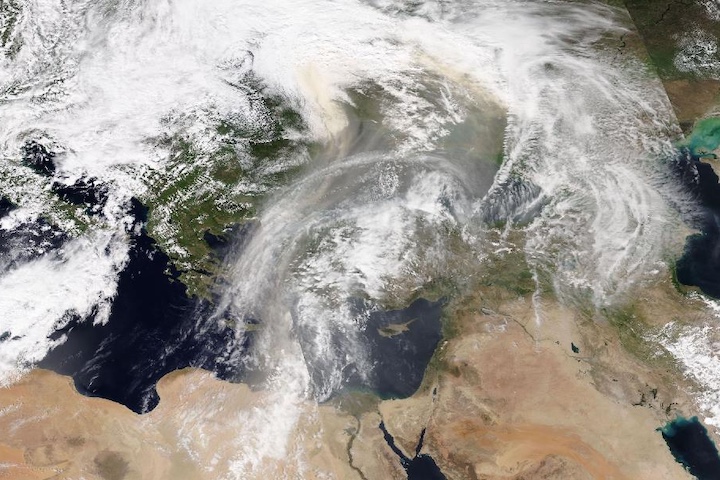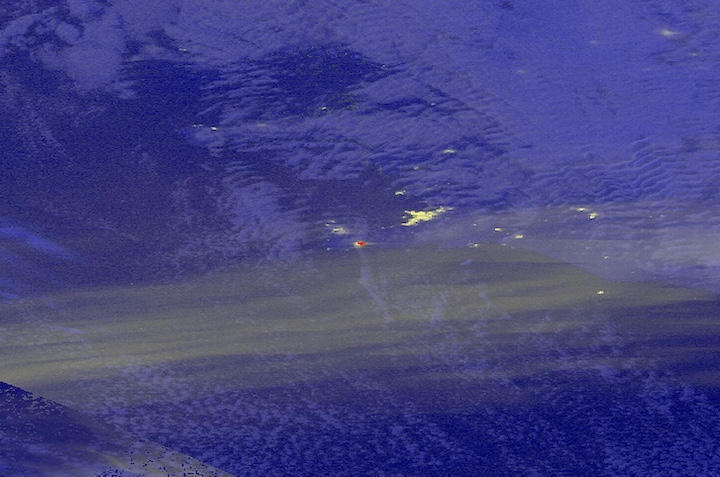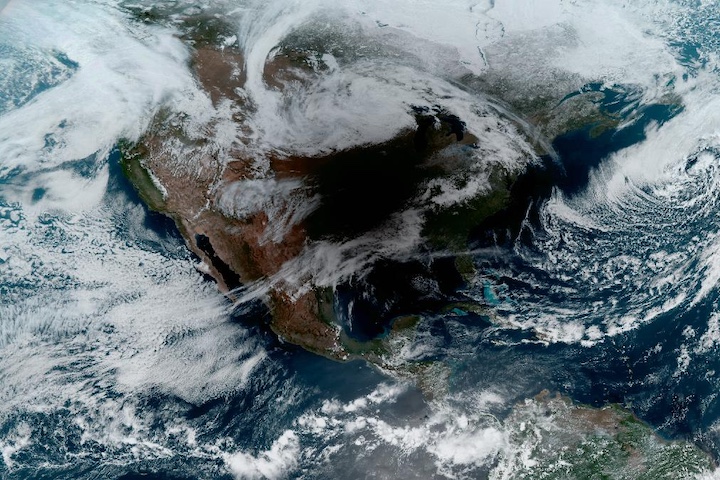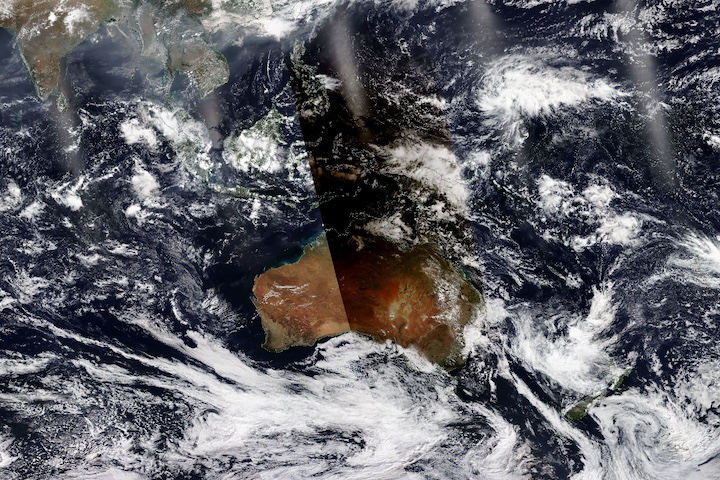True-color corrected reflectance image showing the southwestern coast of Africa overlaid with sea surface temperature (SST) and depicting the cool Benguela Upwelling System. This system can be seen as a blue ribbon along the western coast starting from Cape Point in South Africa up to about 16º south latitude along the Namibian coast. The upwelling system moves surface water away from the coast through wind drag and Coriolis force and brings cooler, nutrient rich waters up from deeper layers of the ocean by coastal upwelling and Ekman transport.
The corrected reflectance image was acquired by the Visible Infrared Imaging Radiometer Suite (VIIRS) instrument aboard the joint NASA/NOAA Suomi National Polar-orbiting Partnership (Suomi NPP) satellite. The sea surface temperature layer represents "skin sea surface temperature" at approximately 10 to 20 micrometers (µm) depth in Celsius (°C) and is created from the Group for High Resolution Sea Surface Temperature (GHRSST) Sea Surface Temperature Level 4, Multi-scale Ultra-high Resolution (MUR) sea surface temperature analysis product, which uses wavelets as basis functions in an optimal interpolation approach on a global 0.011º grid. Blue and green colors indicate cooler SSTs; orange and red colors indicate warmer SSTs.
Click on the icon in the upper right corner to interact with the map in the fully-featured NASA Worldview.
Visit Worldview to visualize near real-time imagery from NASA's EOSDIS; find more imagery in our Worldview weekly image archive.
Dataset
MUR-JPL-L4-GLOB-v4.1 doi:10.5067/GHGMR-4FJ04
Reference
Martin, B. et al. (2024). Studies of the Ecology of the Benguela Current Upwelling System: The TRAFFIC Approach. In: von Maltitz, G.P., et al. Sustainability of Southern African Ecosystems under Global Change. Ecological Studies, Volume 248. Springer, Cham. doi:10.1007/978-3-031-10948-5_11



